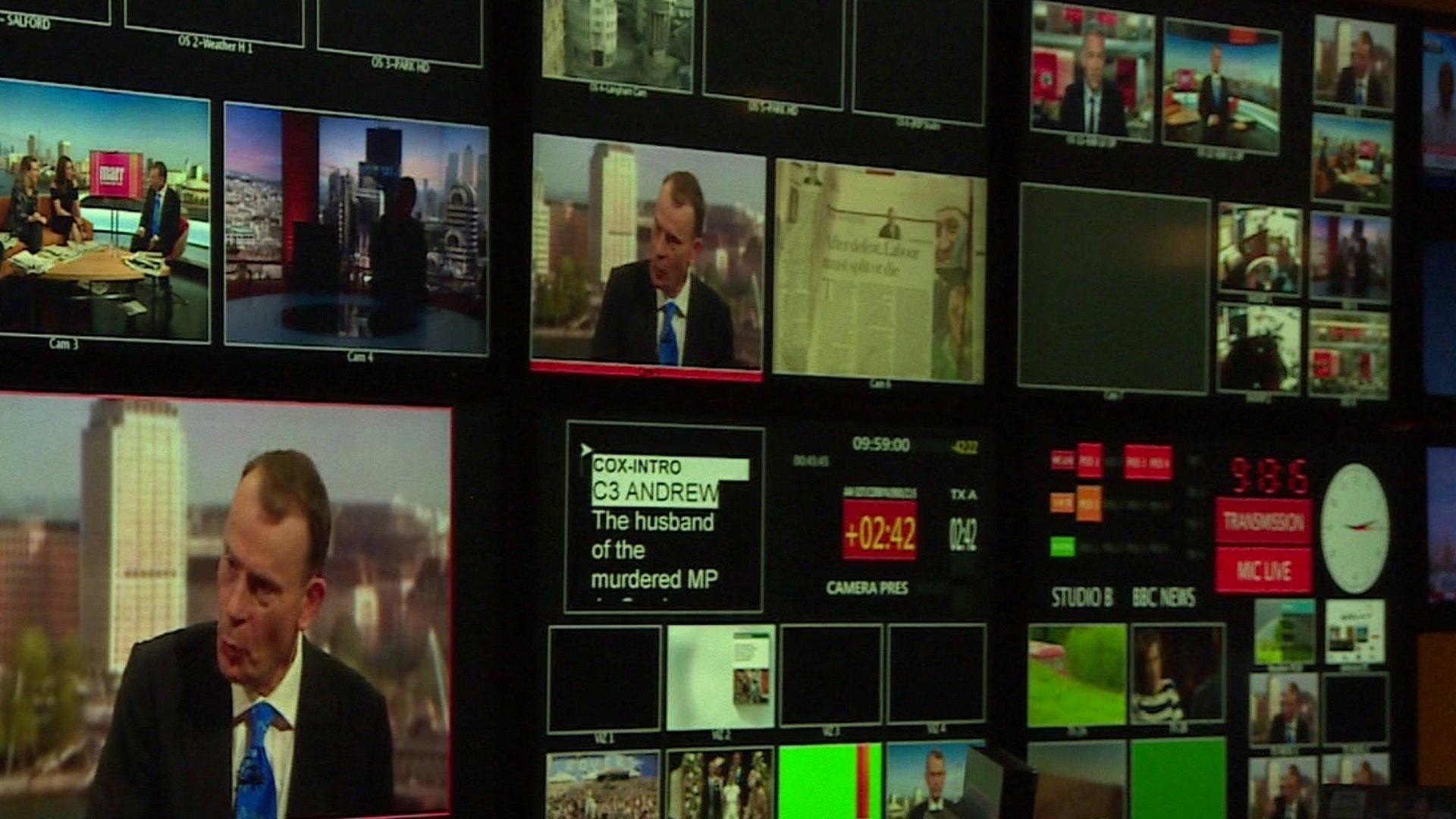Election 2017: Davies says Cairns 'unwilling' to take part in debate
- Published
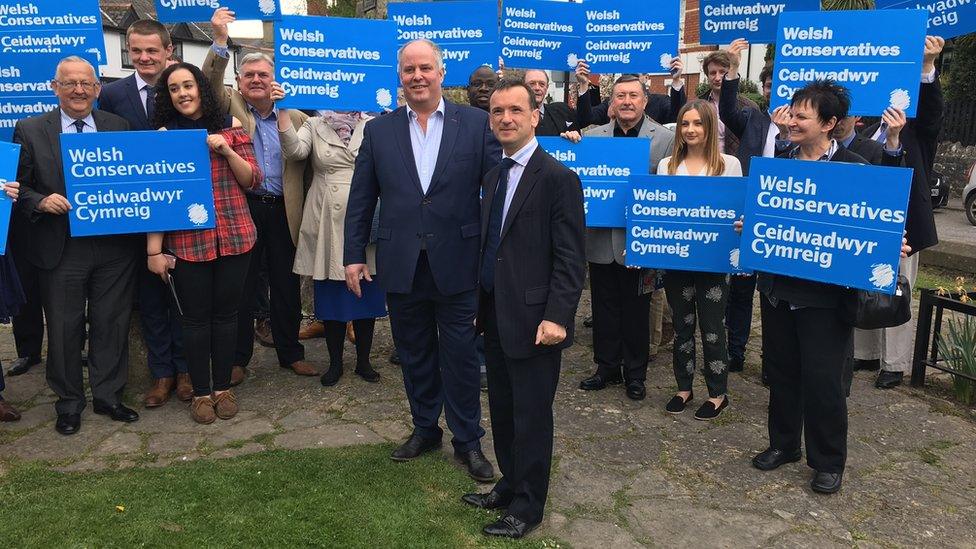
Andrew RT Davies (L) and Alun Cairns (R) will not take part in the debate
A row has erupted between senior Welsh Tories after it emerged neither Welsh Conservative leader Andrew RT Davies nor Welsh Secretary Alun Cairns were taking part in Tuesday's BBC Wales leaders' debate.
The Tories were represented by education spokesman Darren Millar AM.
Mr Cairns said it was intended that Mr Davies would be the representative.
But a spokesman for Mr Davies accused Mr Cairns of being "unwilling" to take part himself.
He said Mr Davies had been happy to take part, but on the basis that one candidate took part in the three Welsh TV debates.
It had been expected that Mr Davies would take part in the earlier Ask The Leader BBC Wales debate, but prior to broadcast, the Conservative Party decided to put up Mr Cairns.
It is understood Mr Davies - who had taken part in the ITV Wales debate earlier in May - is on holiday.
The other parties put up their campaign leaders - Labour's Carwyn Jones, Plaid Cymru's Leanne Wood, Lib Dem Mark Williams and UKIP's Neil Hamilton.
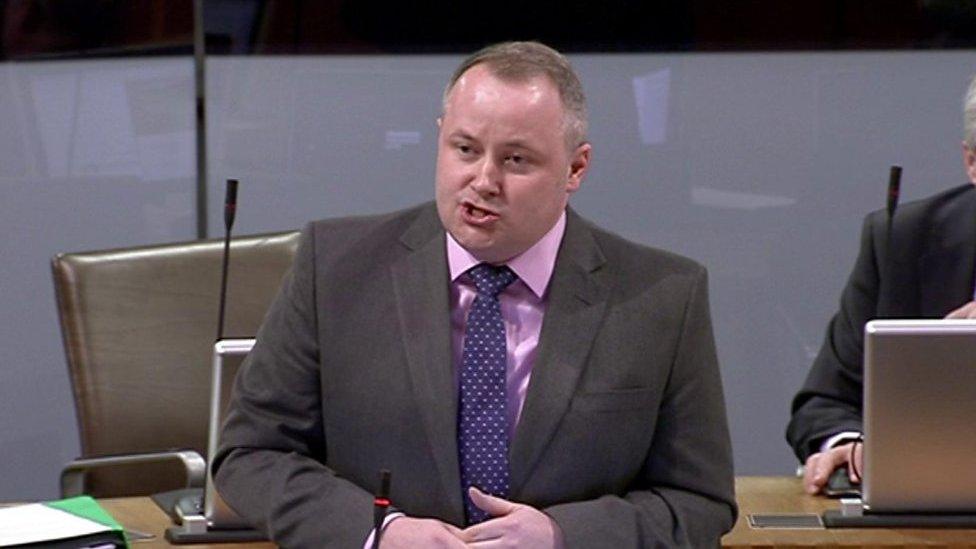
Darren Millar is education spokesman for the Conservatives in the Welsh Assembly
Mr Cairns told BBC Radio 2's Jeremy Vine show that it was "always intended" that Mr Davies would be the debate's Conservative representative.
The Welsh Secretary said he himself was "never" going to be part of the programme, and claimed Mr Davies could not be there for personal reasons.
He said he was confident Mr Millar would do an "excellent job".
Mr Cairns appeared for the Conservatives in last week's series of Ask the Leader programmes on BBC Wales.
Mr Cairns' comments prompted a critical statement from a spokesman for Andrew RT Davies.
He said: "With the Secretary of State unwilling to take part in the General Election debates, Andrew was more than happy to fill in - but that agreement was reached on the basis that it would be best for the party to put forward one candidate for all of the programmes.
"Given that Alun was willing to take part in the Ask the Leader programmes, Andrew felt that it was no longer necessary to return from celebrating his wedding anniversary to do the debate.
"It's a bit of a surprise that Alun isn't taking part tonight, but our Policy Director Darren will do a brilliant job."
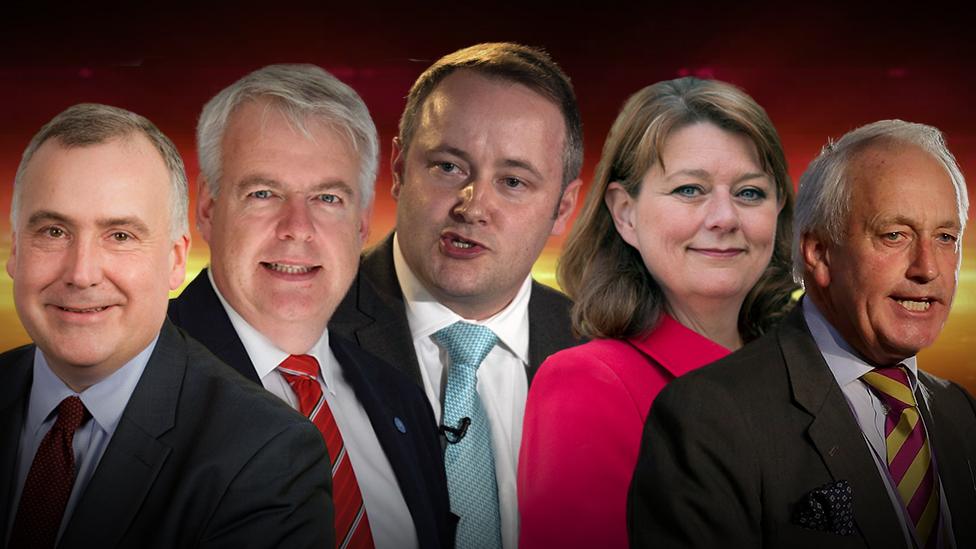
Mr Millar is one of five senior politicians taking part in the BBC Wales leaders debate
A spokesman for BBC Wales said: "BBC Wales invited the main political parties in Wales to nominate a leader to take part in its Leaders' Debate.
"The party chooses its representative and in this instance the Conservative Party has nominated Darren Millar AM."
First Minister Carwyn Jones said the decision showed "incredible disrespect to the people of Wales that the Secretary of State, the leader of the Welsh Conservatives, can't be bothered to turn up at a leaders' debate".
In a statement Plaid Cymru accused the Conservatives of treating "democracy with contempt" and claimed "avoiding scrutiny" seemed to be a "key strategy" for the Tories.
UKIP said it was "very strange for a party leader to be replaced in two leader debates".
The Liberal Democrats claimed Andrew RT Davies "will be desperate to be avoid being next in line for another car crash TV appearance from the Conservatives".
In 2015, then Welsh Secretary Stephen Crabb represented the Tories in the debates, while Owen Smith, then shadow Welsh secretary, took part for Labour.
Mr Jones says he is now involved - instead of Shadow Welsh Secretary Christina Rees - to reflect a change of rules that officially appointed him Welsh Labour leader earlier this year.

Analysis by Daniel Davies, BBC Wales political correspondent
The Conservative campaign was supposed to be about the leadership of Theresa May.
And yet the Welsh Conservatives will be represented by three politicians in three leaders' TV broadcasts.
This is not what they planned.
I'm told Andrew RT Davies was willing to do all three, but clearly that has broken down.
There are contrasting accounts of why that happened. People have differing opinions over who should be participating.
Behind the scenes, there is tension within the party.
One source calls it a "shambles".

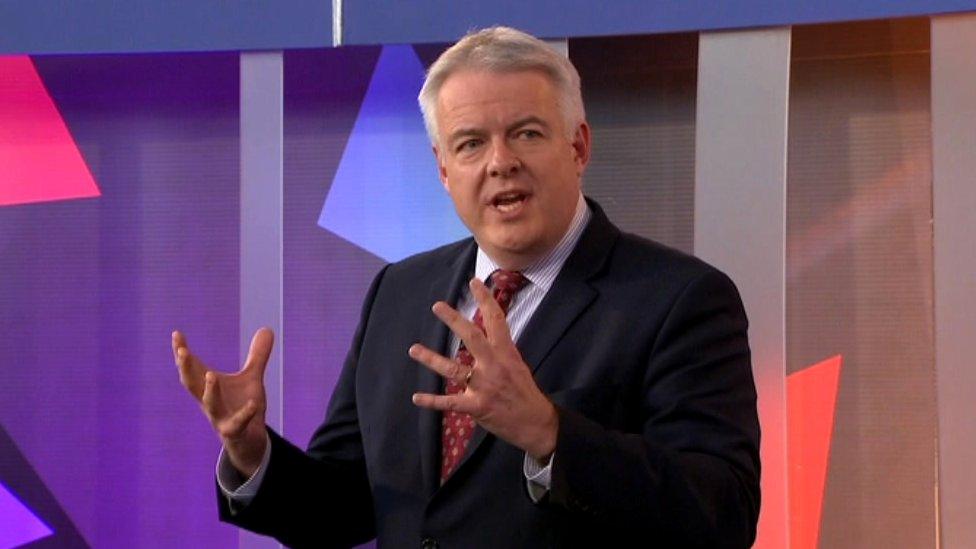
Carwyn Jones - Labour
Despite not being a candidate at the 2017 general election, Carwyn Jones is undoubtedly the face of Labour's campaign in Wales - with little or no mention of Jeremy Corbyn.
That reflects the view that he is more popular in Wales than Labour's UK leader with the party running a distinct Welsh campaign on this side of Offa's Dyke.
Mr Jones grew up in Bridgend, the constituency he has represented in the assembly since 1999, and has been a member of the cabinet since 2000.
During that time he has held the post of environment minister, education minister and the Welsh Government's main legal advisor.
Following Rhodri Morgan's decision to stand down as first minister in 2009, Carwyn Jones beat off the challenge from Edwina Hart and Huw Lewis to become the third leader of the Welsh Government.
When the 2010 general election saw Labour lose power in Westminster, it left Mr Jones as the most senior elected Labour politician in the UK.
He has used his role to try to push for further powers for the assembly and for more clarity on how the different governments of the UK should work together.
However, his views have often put him on a collision course with Welsh Labour MPs who were said to have given him a "roasting" over his views on one occasion.
Mr Jones did not back any of the candidates for the Labour leadership in 2015.
And while he has been lukewarm at best in his support for Jeremy Corbyn, he has also criticised Labour MPs who have been openly critical of their leader.

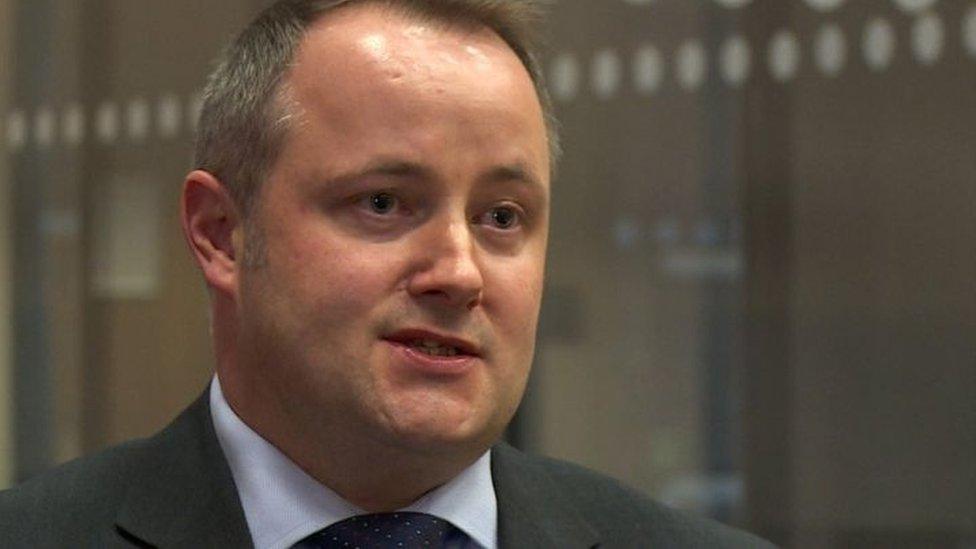
Darren Millar - Conservative
Brought up in Towyn on the north Wales coast, Mr Millar had a background in accountancy before being elected to the Welsh Assembly in 2007 to represent Clwyd West.
A committed Christian, he is currently spokesman for the Welsh Conservatives on education, and has poked fun at his being dubbed "Millar the Cereal Killer" because of his opposition to free school breakfasts - acknowledging its echoes of when former prime minister Margaret Thatcher was called "the milk snatcher".
During the last assembly term, from 2011 to 2016, Mr Millar chaired the assembly's public accounts committee.
While at the helm of the influential body the AM led an inquiry into the Welsh Government's sale of public land to raise funds for regeneration. The inquiry resulted in a highly critical report claiming taxpayers had been short-changed by millions.
He was previously his party's health spokesman for Wales, where he was vocal on problems such as hospital waiting lists and shortages in GP recruitment and, particularly as a north Wales AM, failings at the Betsi Cadwaladr University Health Board.
Before being elected to the assembly, Mr Millar was a Conwy county borough councillor, and at the age of 24 was the youngest serving mayor in Wales, for his home patch of Towyn and Kinmel Bay.
Like Mr Jones and Ms Wood, he is not a candidate in the general election.

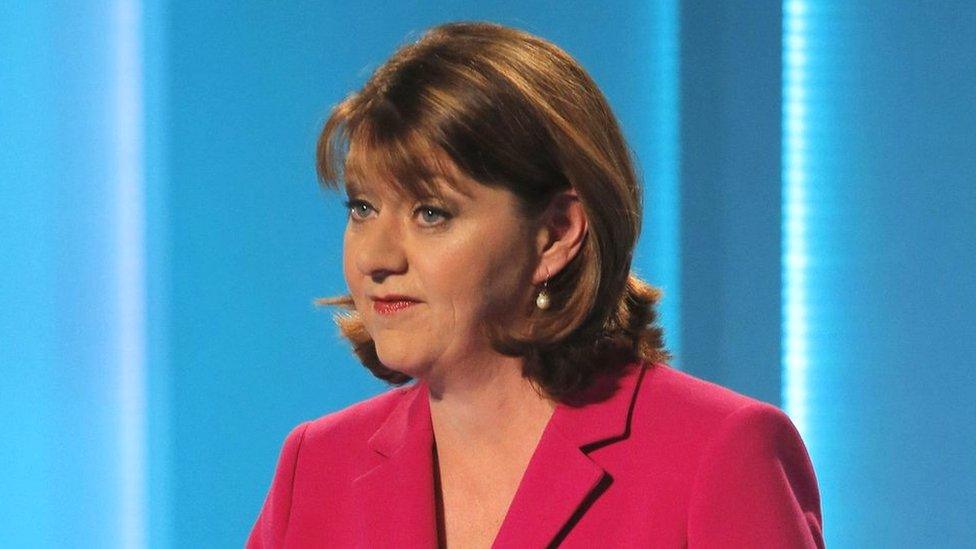
Leanne Wood - Plaid Cymru
Leanne Wood was the outsider who broke the Plaid Cymru mould when she won the party's leadership election in 2012 to succeed Ieuan Wyn Jones.
She is Plaid's first female leader, the first to be a non-fluent Welsh speaker and the first from outside the party's heartlands in north and west Wales.
Born and raised in the Rhondda valleys - where she still lives - her political awakening came during the miners' strikes of the 1980s.
But, unlike many of her peers, Ms Wood turned to Plaid Cymru rather than Labour.
The former probation officer and lecturer in social work was hired as a researcher by MEP Jill Evans.
In 2003, Ms Wood realised her own political ambitions as she entered the Welsh Assembly as a regional AM for South Wales Central.
Nine years later, the staunch republican - considered to be on the left of her party - was elected leader after promoting her economic vision for an independent Wales.
Arguably her biggest personal triumph came in last year's Welsh Assembly elections when she won the Rhondda seat by beating the former Labour minister Leighton Andrews.
In the 2015 general election campaign Ms Wood enjoyed significant UK media coverage but this high public profile did not translate to any increase in seats at Westminster - the party stayed on three.
She is not standing in this election although there was speculation that she would run in the Rhondda.
Party officials and members say the public like her and respond to her on the doorstep - but will this result in the party winning more seats this time round?

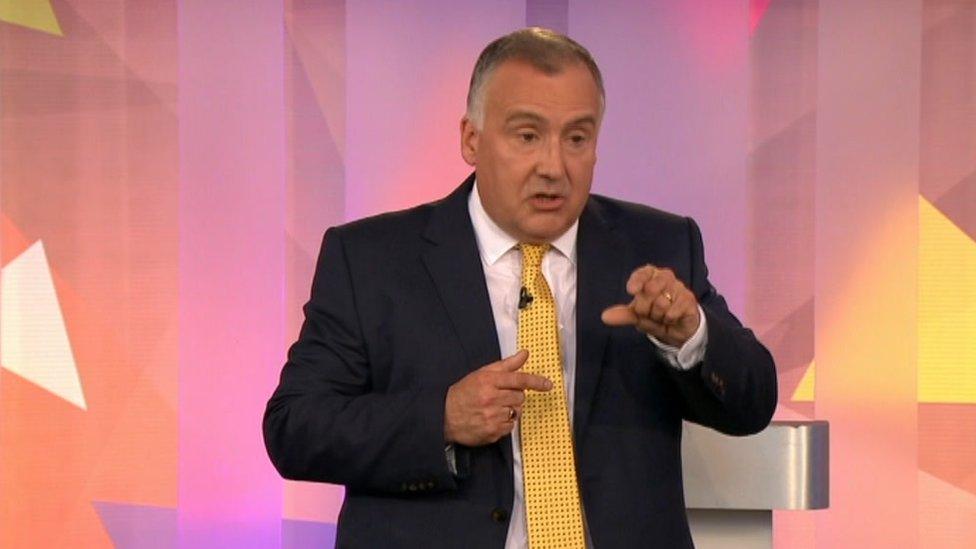
Mark Williams - Liberal Democrats
Mark Williams was born in Hertfordshire in 1966 where he lived until 1984 when he went to study politics at the University of Wales in Aberystwyth.
On leaving university, he worked for the then Liberal MP for Ceredigion, Geraint Howells, before becoming a researcher to the Liberal group of peers in the House of Lords.
After spells as a primary school teacher and deputy head teacher, he was elected to Parliament in 2005 when he won the Ceredigion seat from Plaid Cymru.
Mr Williams remained a Lib Dem backbencher when Nick Clegg took the party into the Westminster coalition with the Conservatives in 2010.
He was re-elected as the Lib Dems' sole MP in Wales in 2015.
In 2016, he was named leader of the Welsh Liberal Democrats in place of Kirsty Williams, who stepped down after a disastrous assembly election left her as the party's only remaining AM.
Mr Williams is pro-EU and a strong supporter of devolution.

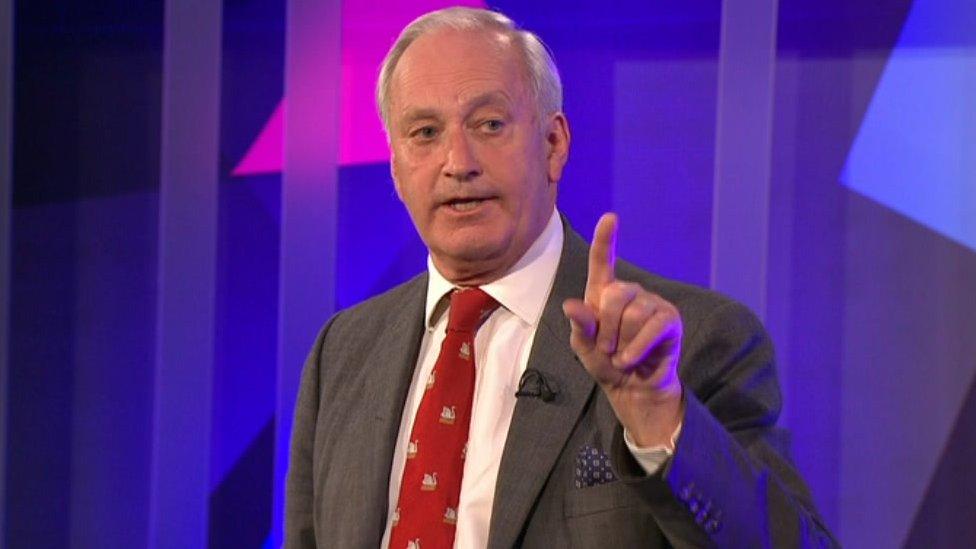
Neil Hamilton - UKIP
Neil Hamilton was born in Monmouthshire in 1949 and spent most of his childhood in Carmarthenshire.
His father was a mining engineer and took part in the rescue effort at the Aberfan disaster of 1966 in which 144 people died, most of them children.
He studied economics and politics at Aberystwyth University and went on to become a barrister.
Mr Hamilton served as Conservative MP for the Cheshire seat of Tatton from 1983 to 1997. Anti-EU, he gained a reputation for being an outspoken MP and was a minister in John Major's government.
He lost his seat in the 1997 general election to the independent challenger, Martin Bell, following the "cash for questions" scandal.
While away from politics, Mr Hamilton has appeared on many celebrity TV and radio shows - often with his wife Christine - including Have I Got News For You?
Mr Hamilton made his political comeback in 2016 when he was elected under the UKIP banner to represent the Mid and West Wales region in the Welsh Assembly , where he leads a group of five AMs.
He has been a controversial figure in the assembly, calling two female AMs "political concubines" in the "harem" of First Minister Carwyn Jones.
Mr Hamilton also apologised after complaints that he told an opposition AM that "suicide was an option" after she said how disappointed she was with the referendum vote for Brexit.

- Published30 May 2017
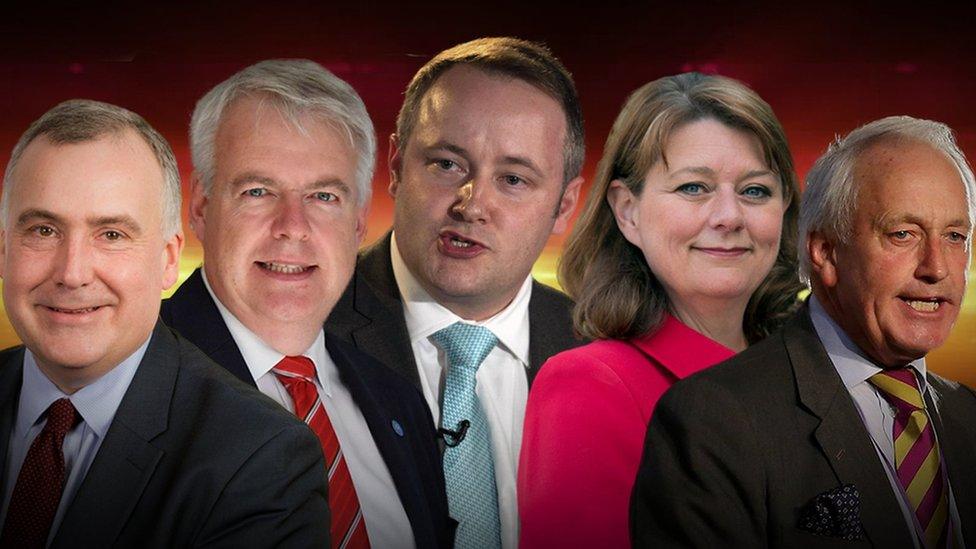
- Published17 May 2017
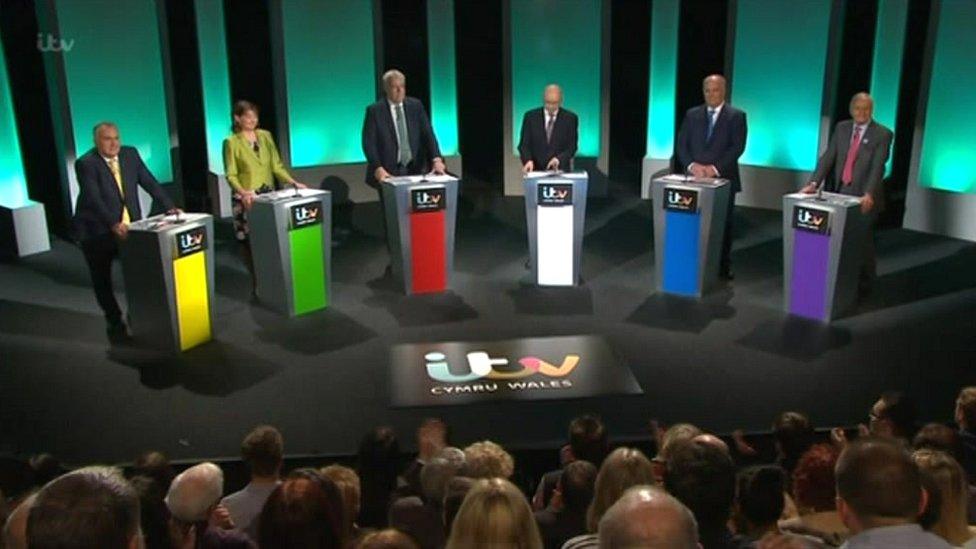
- Published18 May 2017
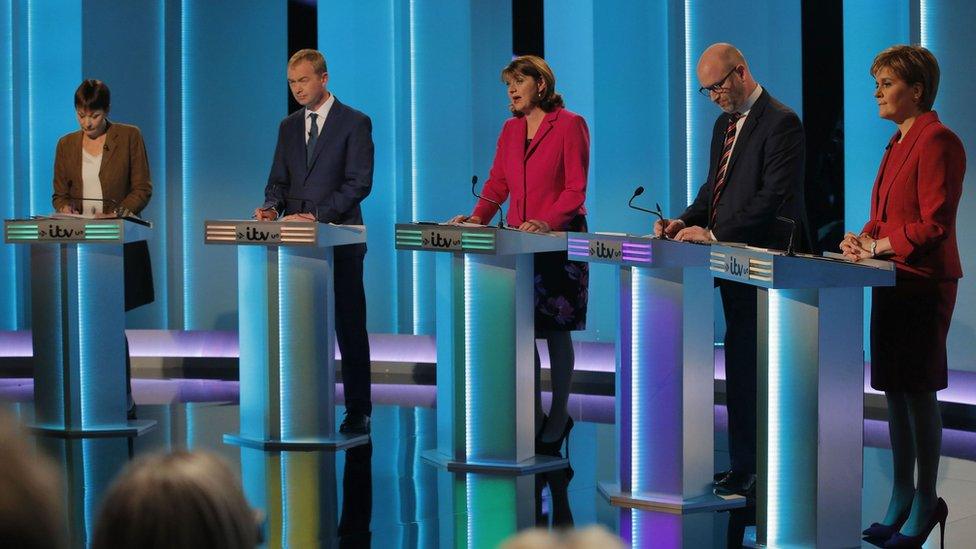
- Published1 June 2017
